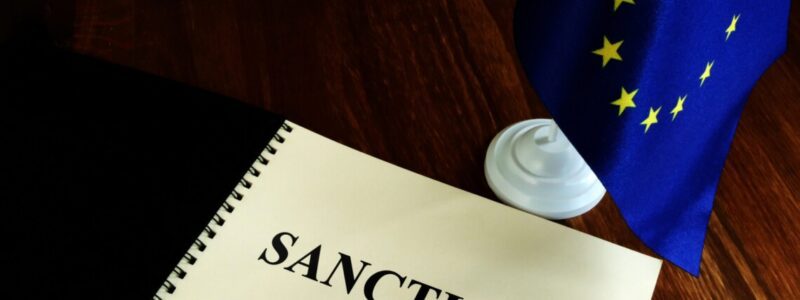
The United States, in contacts with the EU countries, put forward a proposal to apply the experience gained from the implementation of the export control regime in relation to the Russian Federation against China, Bloomberg reported on Monday, citing a number of anonymous sources.
“The United States, in contacts with European allies, has voiced the idea of learning from the export control regime used against Russia to fight China, according to people familiar with the matter,” the agency said.
The White House is “exploring some elements of similar information sharing and coordination in implementing measures to tighten US and EU restrictions” on exports to China, the sources said.
Such discussions come at a time when the EU and the US are discussing the agenda for the third meeting of the Trade and Technology Council scheduled for December 5, which serves as a forum for coordinating trade and technology policy between the EU and the US.
However, the sources note, the EU is not inclined to consider applying to the PRC the same approach that was used in relation to Russia. According to one source, the EU may look at the goods that Beijing is able to use to increase its military capabilities.
In turn, the US National Security Council denied plans to extend the export control regime against the Russian Federation to China, and the fact of discussions on this topic with European countries.
Bloomberg explains that export restrictions are considered potentially effective in slowing down China’s development amid global competition for technological supremacy.
On October 7, the US Department of Commerce banned the sale to China of the most advanced chips, as well as equipment, components and software for their production, with a special focus on technologies related to artificial intelligence and potential military applications. The restrictions affected the exports of other countries, which depend on similar American technologies and programs. Also, US citizens were forbidden to advise the Chinese side or provide it with other services in this area.
Subsequently, US Deputy Secretary of Commerce for Industry and Security Alan Estevez said that Washington expects an early agreement with the allies on their accession to these restrictions. However, authorities in the Netherlands, home of ASML Holding, a manufacturing equipment for the electronics industry, have expressed concern about the effect of new US restrictive measures.
Meanwhile, in mid-October, The Financial Times reported, citing an EU foreign policy document prepared for a meeting of the EU Foreign Affairs Council, that, in its opinion, China is a competitor that needs to be confronted, and that policy towards China should be tightened. A number of EU leaders later also warned against economic dependence on China.